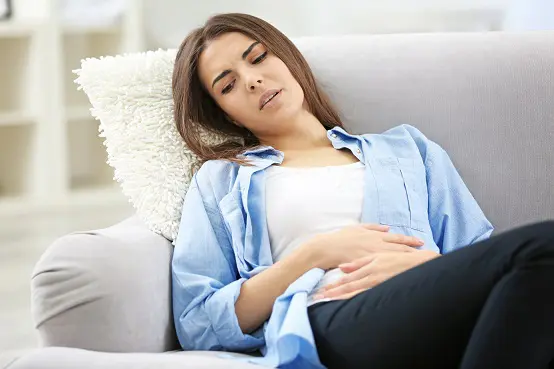Menstruation can be a cause of discomfort and uneasiness for most of the women. However, the trickier part is the symptoms that are faced by a woman before the onset of her menstruation, commonly known as PMS symptoms.
WHAT IS PMS?
PMS stands for Premenstrual Syndrome, which is extremely common in women before the onset of their period. Mainly, PMS is a result of hormonal changes.
WHAT ARE PMS SYMPTOMS?
PMS symptoms or premenstrual syndrome symptoms are a group of symptoms faced by a woman, before the onset of her menstruation, between ovulation and period. The symptoms of PMS vary from one woman to another. Moreover, these symptoms keep fluctuating constantly; for instance, what your symptom is this month, might disappear the following month.
Some of the common symptoms of PMS are:
1. Abdominal Pain
The onset of menstruation is characterised by pain in the abdomen, which can range from mild to severe. Hot water bags or compresses can be an effective way to ease the pain.
2. Tender or Sore Breasts
Some women experience a softness in their breasts, usually a couple of days before the period. Similarly, some women experience soreness or mild pain in their breasts.
3. Mood Swings
One of the most common symptoms of PMS, mood swings can be tough to tackle. Craving for a particular kind of food, usually junk or sweets, is also very common.
4. Anxiety & Depression
Owing to hormonal changes, many women might experience severe anxiety. These can result in withdrawing themselves completely or sudden emotional outbursts. Constant irritability is very common, too.
5. Bloating, Constipation, and Diarrhoea
Bloating is characterised by the swelling of stomach before your period. Constipation and diarrhoea are also very common symptoms of PMS, causing discomfort and annoyance.
Some other symptoms of Premenstrual Syndrome include:
6.Fatigue
7.Sleep disturbances
8.Body pain and muscle cramps
9.Pimples and acne
10.Lower back pain
11.Headaches
12.Loss of appetite
TREATMENT
Usually, the symptoms gradually disappear with the onset of period. In many women, they persist after the onset of menstruation, too. Proper diet and exercise can help you get rid of many of them. However, if they last longer or cause much discomfort, it would be wise to visit a doctor.



